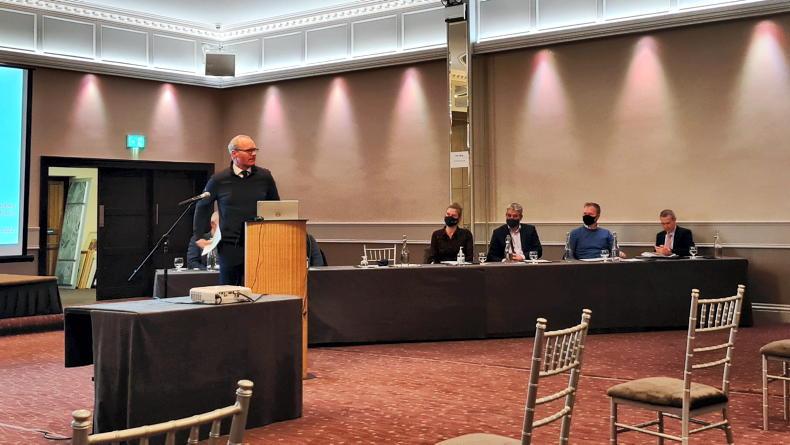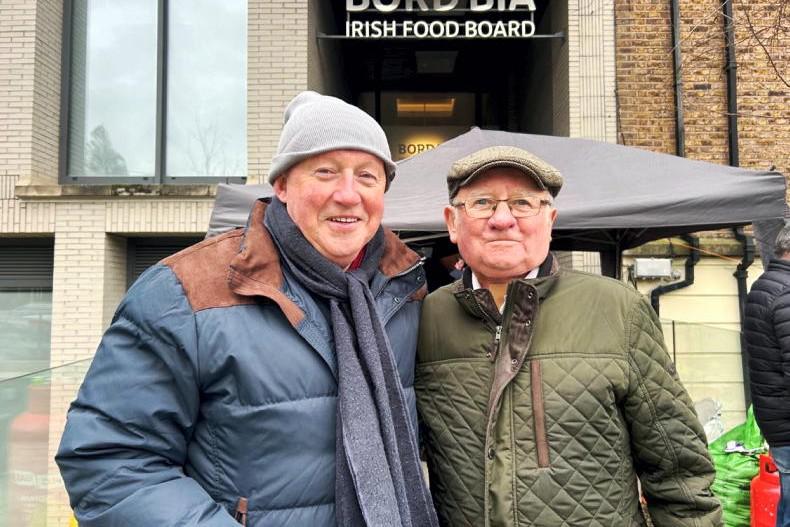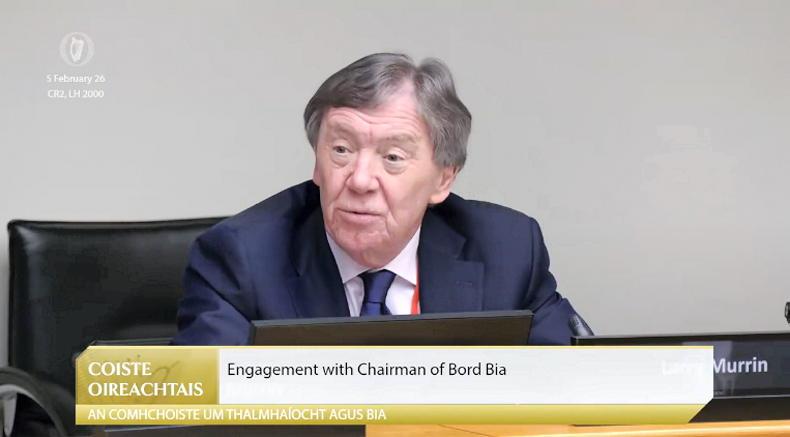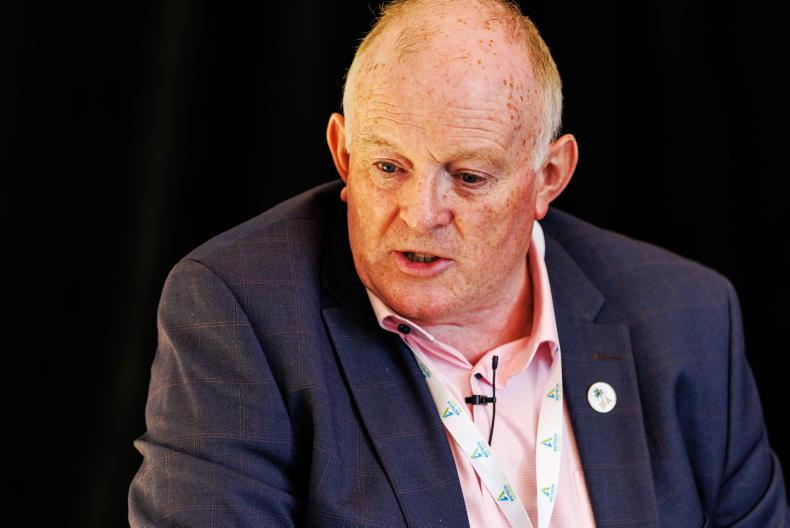Minister for Foreign Affairs Simon Coveney has said that, in regards to emissions, not everything is necessarily about reductions.
Speaking at a meeting organised by the Carrigaline branch of the IFA, Minister Coveney said it is to maintain output but to do it in a much smarter way.
While stressing that he is not the Minister for Agriculture, he said: “I believe that what we’re asking of agricultural is achievable.
It’s up to us in Government to ensure we’re supporting and financing research that will help
“We can have highly efficient, highly productive farms while reducing overall emissions and I believe that it can be more profitable to be more efficient in terms of emissions management. But it is going to involve some change.
“It’s up to us in Government to ensure we’re supporting and financing research that will help to demonstrate how you can do that and of course to help financially support you make the necessary changes.”
Minister Coveney also told those present that the benchmark for him “in terms of supporting agriculture is if sons and daughters want to take over the business”.
Eco schemes
When questioned why eco schemes haven’t been reduced down to 20%, he hinted that the purpose behind the 25% level could be seen as an addition to the climate action fund.
“I think the signal that the Minister [McConalogue] is sending is that he wants everyone on board and to get an income from eco schemes.
“Every farmer should see themselves as being viable when it comes to the eco schemes. Both highly intensive and this less intensive ones.
In some parts of the country they’ll be demanding 100% convergence and in other parts of the country they want no more
“This is about trying to avoid dramatic income change in terms of supports through pillar one but recognising that there needs to be some more advancement on convergence.
“In some parts of the country they’ll be demanding 100% convergence and in other parts of the country they want no more. ”

Carrigaline IFA branch held a meeting with local politicians on Monday evening.
Convergence was one of hot topics farmers in attendance had and Minister Coveney's experience as Minister for Agriculture at the previous CAP reform in 2014 meant he was familiar with the challenge faced by Minister McConalogue. At those 2014 reform talks, Minister Coveney had tried to maintain convergence at a lower level in order to lessen the financial effects to those on higher payments while at the same time making them aware that further convergence was likely in future reforms.
Renewable energy
In a wide-ranging question-and-answer session, the Foreign Affairs Minister highlighted the potential introduction of renewable energy on farms and that from next year farmers will be able to sell a certain amount of excess energy onto the grid.
He said that anaerobic digesters (AD) also had a role, but that a number of AD units struggled when it came to planning permission in Cork.
“We have to find a way to create acceptance and debunk some of the myths around them and invest heavily in research,” he said.
Political attendance
Minister for Public Expenditure Michael McGrath was also expected at the meeting in Carrigaline but had to send his apologies at the last minute as he had to attend a meeting in Dublin at short notice. He was replaced by Cllr Seamus McGrath.
Speaking to the Irish Farmers Journal after the meeting, Minister Coveney said: “I think Charlie McConalogue is doing a good job in difficult circumstances because he’s trying to manage a lot of change at the same time.
“It’s very unusual that you have a Climate Action Plan of this ambition as well as a Nitrates Action Plan going on at the same time.
“He has consulted widely – going around the country meeting farmers in marts, listening to what they have to say and he’s the one who has to bring recommendations to Government and try and get the balance right.”
Minister for Foreign Affairs Simon Coveney has said that, in regards to emissions, not everything is necessarily about reductions.
Speaking at a meeting organised by the Carrigaline branch of the IFA, Minister Coveney said it is to maintain output but to do it in a much smarter way.
While stressing that he is not the Minister for Agriculture, he said: “I believe that what we’re asking of agricultural is achievable.
It’s up to us in Government to ensure we’re supporting and financing research that will help
“We can have highly efficient, highly productive farms while reducing overall emissions and I believe that it can be more profitable to be more efficient in terms of emissions management. But it is going to involve some change.
“It’s up to us in Government to ensure we’re supporting and financing research that will help to demonstrate how you can do that and of course to help financially support you make the necessary changes.”
Minister Coveney also told those present that the benchmark for him “in terms of supporting agriculture is if sons and daughters want to take over the business”.
Eco schemes
When questioned why eco schemes haven’t been reduced down to 20%, he hinted that the purpose behind the 25% level could be seen as an addition to the climate action fund.
“I think the signal that the Minister [McConalogue] is sending is that he wants everyone on board and to get an income from eco schemes.
“Every farmer should see themselves as being viable when it comes to the eco schemes. Both highly intensive and this less intensive ones.
In some parts of the country they’ll be demanding 100% convergence and in other parts of the country they want no more
“This is about trying to avoid dramatic income change in terms of supports through pillar one but recognising that there needs to be some more advancement on convergence.
“In some parts of the country they’ll be demanding 100% convergence and in other parts of the country they want no more. ”

Carrigaline IFA branch held a meeting with local politicians on Monday evening.
Convergence was one of hot topics farmers in attendance had and Minister Coveney's experience as Minister for Agriculture at the previous CAP reform in 2014 meant he was familiar with the challenge faced by Minister McConalogue. At those 2014 reform talks, Minister Coveney had tried to maintain convergence at a lower level in order to lessen the financial effects to those on higher payments while at the same time making them aware that further convergence was likely in future reforms.
Renewable energy
In a wide-ranging question-and-answer session, the Foreign Affairs Minister highlighted the potential introduction of renewable energy on farms and that from next year farmers will be able to sell a certain amount of excess energy onto the grid.
He said that anaerobic digesters (AD) also had a role, but that a number of AD units struggled when it came to planning permission in Cork.
“We have to find a way to create acceptance and debunk some of the myths around them and invest heavily in research,” he said.
Political attendance
Minister for Public Expenditure Michael McGrath was also expected at the meeting in Carrigaline but had to send his apologies at the last minute as he had to attend a meeting in Dublin at short notice. He was replaced by Cllr Seamus McGrath.
Speaking to the Irish Farmers Journal after the meeting, Minister Coveney said: “I think Charlie McConalogue is doing a good job in difficult circumstances because he’s trying to manage a lot of change at the same time.
“It’s very unusual that you have a Climate Action Plan of this ambition as well as a Nitrates Action Plan going on at the same time.
“He has consulted widely – going around the country meeting farmers in marts, listening to what they have to say and he’s the one who has to bring recommendations to Government and try and get the balance right.”










SHARING OPTIONS